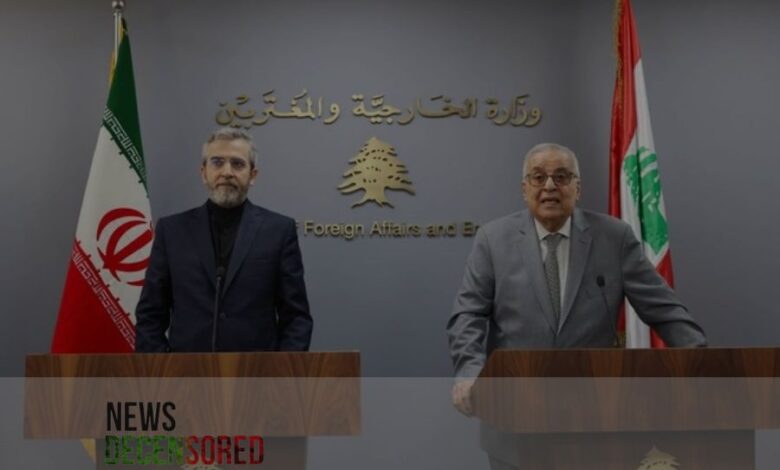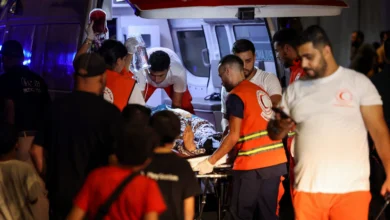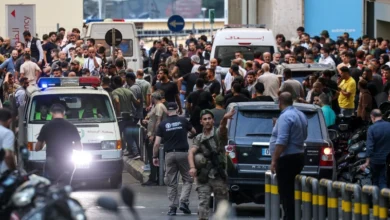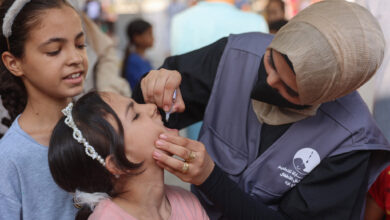‘We Reject War’ Lebanon says to the Iranian Foreign Minister

Still, Lebanon is not an aggressor and actively tries to find long-lasting solutions for southern Lebanon’s peace and stability, which were disrupted by an attack on Sunday, Lebanese Foreign Minister Abdullah Bou Habib said on Monday. Olmert made these comments during the press briefing held in Beirut together with the then Iranian Foreign Minister, Ali Bagheri Kani, in the backdrop of various skirmishes that involved the Hezbollah and the Israeli forces.
Hezbollah said it had sent a fleet of drones toward the headquarters of the Israeli military’s Galilee formation to move up the confrontation. At the same time, an Israeli military drone fired at a vehicle on the road between the villages of Kharayeb, Zrariyeh and Kauthariyett Al-Rez, leaving one dead.
The recent trip of the acting Iranian foreign minister to Beirut to meet with the Lebanese officials and representatives of Hezbollah, Hamas, and Islamic Jihad is more than a clear indication of the situation. Kani’s conversations with the Ministry of Foreign Affairs of Lebanon touched upon Iran’s need for stability in Lebanon; both ministers covered some regional concerns and the Gaza crisis.
The necessity of resistance to the Zionist regime was again emphasised by Kani when he said, “We are at the peak of our loyalty to Lebanon as it is evident that the close interaction between Iran and Lebanon is the sign of stability in the region better known as resistance is the foundation of stability in the region. ” The issue of Gaza was then discussed, especially concerning Rafah, and both parties agreed on the need for a united stand against Israeli atrocities and called upon the
Bou Habib stressed Lebanon’s noninterference in the war and supported any measures that would bring ‘back stability and order’, as UN Res. 1701 proposed, which addressed the 2006 Lebanon War.
Kani’s visit was the first since the September loss of Iranian Foreign Minister Hossein Amir Abdollahian in a helicopter accident. It was made at a time when Hezbollah and the Israeli army were already escalating. Violations on Monday were aimed at areas within the vicinity of Saida and Iqlim Al-Tuffah/liberate, and more of the same might mean intensification. Political analysts stated that the longevity of operations might prompt the conflict into an actual war.
Israeli warplanes are bombing in stages the areas of Jabal Al-Rihan in Jezzine and Jabal Abou Rashed and the outskirts of Meidoun in Jezzine. The attack through the use of a drone in Naqoura led to the death of a single person while the other was critically injured.
Furthermore, attacks that were in the form of dummy air raids with Israeli planes, which flew over Al-Zahrani and loudly broke the sound barrier, led to property damage and even broken windows in several villages, including a special needs school in Sarafand.
Israeli artillery and airstrikes targeted various locations, including the outskirts of Mhaibib, Khiam, Aita Al-Shaab, and Hanin in Bint Jbeil, along with the Kasaret Al-Arayesh and Aramta heights in Iqlim Al-Tuffah.
Ali Abbas Hamieh, a researcher and writer in strategic and military affairs, noted a shift in Israeli army strategy, indicating a deeper involvement in southern Lebanon. He observed that while Israel continues its offensive, Hezbollah has yet to announce a formal escalation but has taken proactive measures, including targeting Israeli weapon factories.
Hamieh suggested that Hezbollah’s military deterrence strategy is now in effect, with both sides aware of the high costs involved. He speculated that Israel would avoid attacking sensitive locations in Lebanon to prevent retaliatory strikes on critical Israeli targets.
Hezbollah claimed responsibility for several attacks on Monday, including the launch of attack drones on Israeli military positions and targeting an army vehicle and espionage equipment with guided missiles and artillery shells. These actions have reportedly resulted in casualties among Israeli forces.
As the situation remains tense, both Lebanese and Israeli forces brace for potential further escalations, with the international community closely monitoring developments in hopes of preventing a full-scale war.




